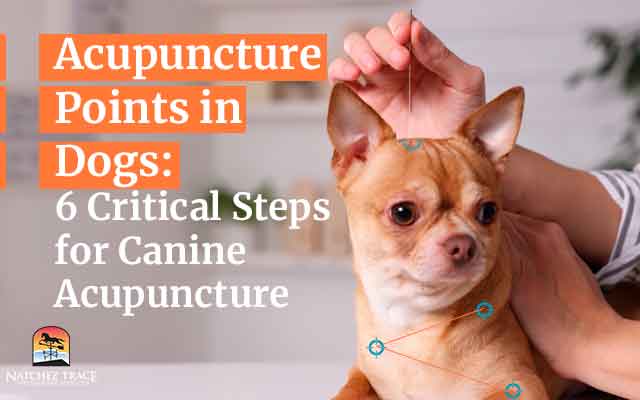Acupuncture points in dogs might sound like something from a kung fu movie, but it’s actually a cool way to help our four-legged friends feel better.
Think of your dog as a superhero, and these points are like secret buttons that can help them regain their superpowers when they’re not feeling top-notch.
Watch this video of Dr. Marc Smith, DVM, demonstrating how acupuncture can relieve chronic pain:
Just a tiny, gentle press on these spots by a vet, and voila! Your pup gets a boost in health and happiness.
People usually question the effectiveness of traditional Eastern treatments such as acupuncture. But, there’s a reason why this ancient method of healing continues to exist despite the advancing medical technologies of the West.
Let’s dive into canine acupuncture and why identifying the appropriate acupuncture points in dogs is vital in this delicate procedure.
What Is Canine Acupuncture?
Canine acupuncture is like a targeted healing mission for your dog. It involves Dr. Smith pl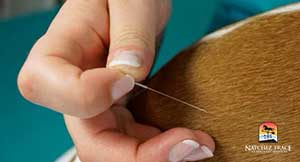 acing very small needles into certain areas of your dog’s body, much like tapping into little wellness buttons.
acing very small needles into certain areas of your dog’s body, much like tapping into little wellness buttons.
Acupuncture points in dogs are unique because they’re linked to different health benefits, such as reducing pain or helping with relaxation.
Now, let’s turn our attention to these intriguing spots, known as acupuncture points in dogs, and uncover how a veterinarian’s precise touch on these points can lead to some pretty amazing results for your furry friend.
Locating Acupuncture Points in Dogs
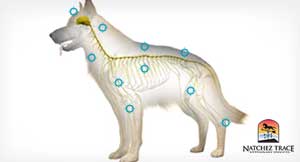 Finding acupuncture points in dogs is like using a map to uncover hidden treasure. These points are spread all over your dog’s body, and each one is a hotspot for health.
Finding acupuncture points in dogs is like using a map to uncover hidden treasure. These points are spread all over your dog’s body, and each one is a hotspot for health.
A veterinarian like Dr. Smith who knows the map well can use it to target areas that need a health boost. Think of it like this: if your dog’s body was a big city, then each acupuncture point is like a bus stop where health-giving energy gets on and off.
Our next step is to learn how veterinarians find these bus stops and what happens when they send that health-giving energy on its way.
The Acupuncture Process for Dogs
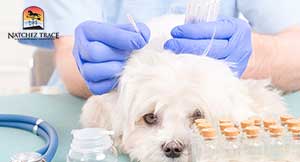 Imagine your dog has a hidden network of paths inside their body. Now, think of an acupuncturist as a guide who knows exactly where to place tiny needles along these paths.
Imagine your dog has a hidden network of paths inside their body. Now, think of an acupuncturist as a guide who knows exactly where to place tiny needles along these paths.
These needles are like little signals that tell your dog’s body to ‘heal here’ or ‘relax there.’
It’s a fascinating process, and understanding it step by step can help you see how each gentle needle placement can lead to big changes in your dog’s health and mood.
Let’s walk through this process together.
Step-by-Step Guide to the Acupuncture Process for Dogs:
- Preparation:
- Dr. Smith creates a calm space so your dog feels safe and relaxed.
- Your furry friend gets comfy, maybe with their favorite blanket.
- Examination:
- Dr. Smith checks your dog’s health, feeling for the acupuncture points like searching for tiny dents on a soft cushion.
- Needle Placement:
- He carefully inserts needles into the points. It’s quick and gentle — most dogs hardly notice.
- The Healing Time:
- After the needles are in, it’s time for a peaceful rest. This rest may last 30 minutes or longer. Your dog might doze off while their body starts the healing journey.
- Needle Removal:
- The needles are removed as smoothly as they went in, marking the end of the session.
- Post-Session Care:
- Your dog gets lots of praise and maybe a treat for being a champ.
- Dr. Smith might suggest some aftercare, like taking it easy for the rest of the day.
You’ve learned how the acupuncture process works. Now let’s dig into the rewards it brings and some few cautions you should know about that come along.
Benefits and Risks of Acupuncture for Dogs
Acupuncture comes with many benefits for your pup. However, it is equally important to be completely aware of the risks that come with it.
Let’s unveil how acupuncture improves your dog’s health and the small things to watch out for when opting for this treatment.
Benefits:
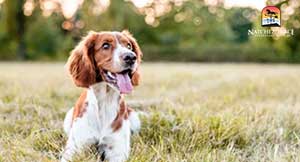 Pain Relief: Alleviating chronic pain associated with arthritis, hip dysplasia, and musculoskeletal conditions.
Pain Relief: Alleviating chronic pain associated with arthritis, hip dysplasia, and musculoskeletal conditions.- Stress and Anxiety Reduction: Calming nervous dogs, is particularly helpful for separation anxiety and phobias.
- Enhanced Healing: Aiding in post-surgical recovery or injury healing by boosting the body’s natural healing response.
- Improved Mobility: Assisting senior dogs or those with mobility issues in regaining movement and flexibility.
- Gastrointestinal Support: Helping manage digestive issues such as vomiting, diarrhea, or constipation.
- Immune System Support: Strengthening the immune system for better overall health and disease resistance.
Risks:
- Minor Discomfort: Some dogs may experience mild discomfort during needle insertion, but this is usually fleeting.
- Bruising or Bleeding: In rare cases, bruising or minor bleeding might occur at the needle insertion sites.
- Worsening of Symptoms: Although uncommon, there might be instances where symptoms appear to worsen temporarily after treatment.
- Infection: If the needles are not properly sterilized or the insertion sites aren’t adequately cared for, there might be a risk of infection, albeit extremely rare when performed by a certified professional.
Remember, the risks are low when acupuncture is administered by a qualified and experienced veterinary professional.
Always consult with a certified veterinarian like Dr. Smith who specializes in acupuncture to discuss potential risks and decide if acupuncture is a suitable treatment option for your dog.
Finding a Qualified Canine Acupuncturist
Choosing the right canine acupuncturist is like selecting the perfect guide for your dog’s health journey.
It’s like finding someone who speaks ‘dog’ fluently and knows their way around your pup’s wellness map.
By checking their credentials, listening to other pet parents’ reviews, and making sure they understand your furry friend’s specific needs, you can find a ‘health buddy’ who knows the best pathways to your dog’s health.
Here are some key factors to consider when seeking a qualified canine acupuncturist:
- Certification and Training: Look for a certified veterinary acupuncturist (CVA) who has completed accredited training in veterinary acupuncture from reputable institutions or associations, such as Chi University, the International Veterinary Acupuncture Society (IVAS), or the American Academy of Veterinary Acupuncture (AAVA).
- Experience and Expertise: Prioritize practitioners with extensive experience in treating animals, specifically dogs, using acupuncture. Vet clinics or professionals who specialize in holistic veterinary medicine or have a strong background in traditional Chinese veterinary medicine (TCVM) offer valuable expertise.
- Good Reputation: Seek recommendations from other pet owners, veterinary clinics, or online reviews to gauge the practitioner’s reputation and the satisfaction of their clients.
- C
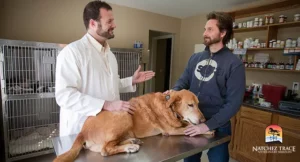 onsultation Approach: Look for a practitioner who takes the time to understand your dog’s health concerns, is open to discussing treatment plans, and shows a genuine interest in the well-being of your pet.
onsultation Approach: Look for a practitioner who takes the time to understand your dog’s health concerns, is open to discussing treatment plans, and shows a genuine interest in the well-being of your pet. - Hygiene and Safety Standards: Ensure that the clinic or practitioner follows strict hygiene practices, including proper sterilization of needles and maintaining a clean and safe treatment environment.
- Compassion and Communication: Choose a practitioner who demonstrates compassion, communicates effectively, and is respectful and understanding of your dog’s needs and temperament.
- Follow-up Care: Inquire about post-treatment care recommendations and the practitioner’s willingness to provide ongoing support and guidance.
- Transparency and Explanation: A good acupuncturist will openly explain the treatment process, the number of sessions required, potential outcomes, and any associated risks.
By considering these factors, you can make an informed decision when choosing a qualified canine acupuncturist, ensuring the best possible care for your dog.
In Summary
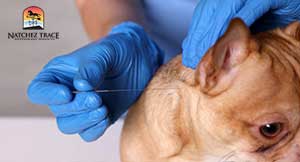 From learning about acupuncture points to understanding its benefits and possible cautions, we’ve explored how acupuncture can be a valuable addition to your dog’s health routine.
From learning about acupuncture points to understanding its benefits and possible cautions, we’ve explored how acupuncture can be a valuable addition to your dog’s health routine.
Remember, canine acupuncture is not a replacement for conventional treatments, but a helpful addition.
If your dog needs extra care, consult with Dr. Smith to see if acupuncture could be a beneficial part of their wellness plan. Here’s to healthier and happier days for your furry companion!
People also Ask:
- Is acupressure a substitute for seeing a vet? Acupressure is NOT a replacement for seeing a vet.
- How do you treat canine acupressure points? Treating canine acupressure points involves applying firm pressure with your fingers or thumb to specific points on the dog’s body.
- How does acupuncture work in dogs? The technique requires the insertion of fine needles into the dog’s body at specified points, called acupuncture points, where nerves and blood vessels converge.

